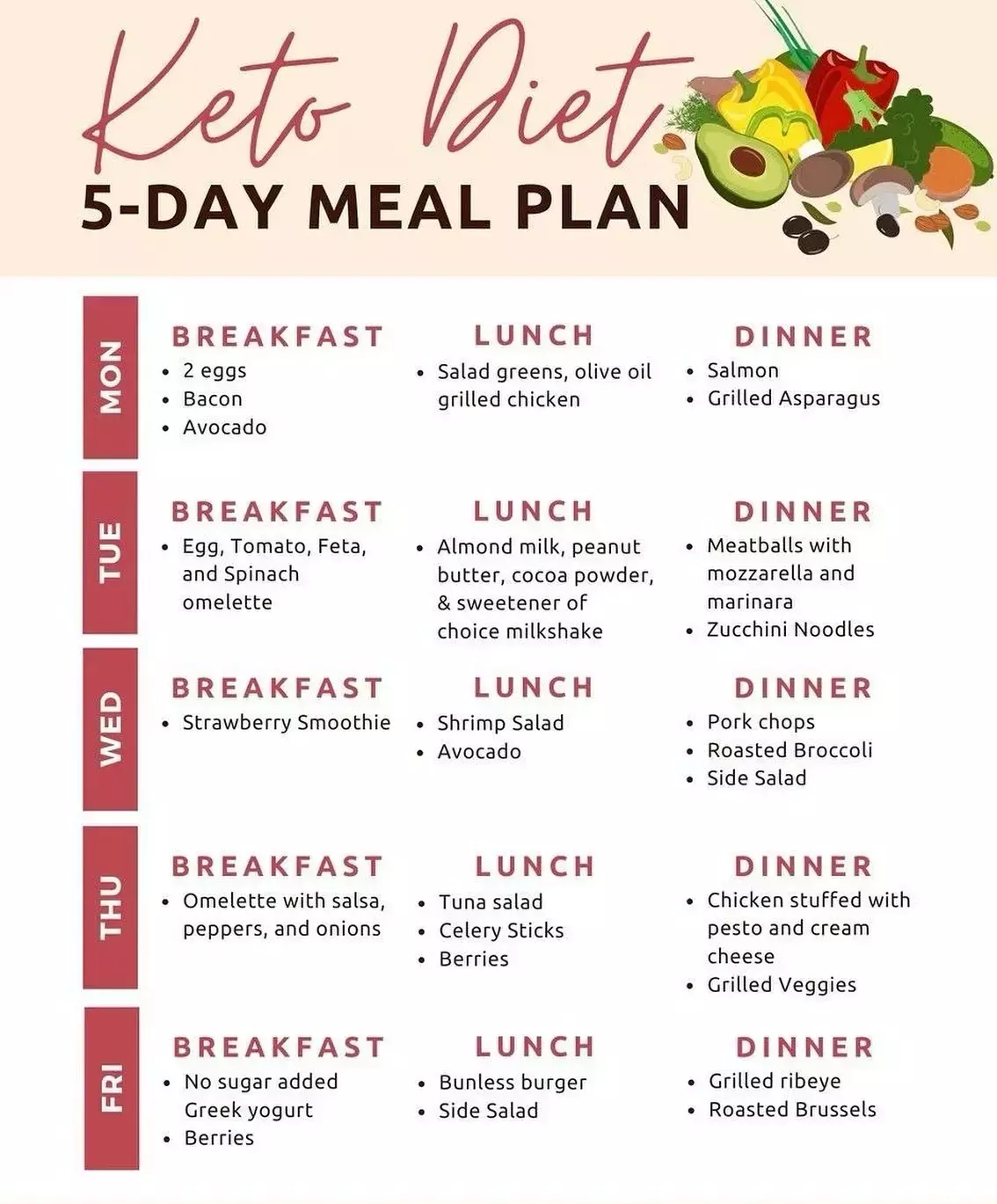Health
Other Health Benefits of a Keto Diet Plan that May Surprise You!
The keto diet has been the subject of many scientific studies, dating back to the 1920’s, to prove its ability to help improve health. These days it is principally known as a good way to lose weight, without suffering hunger pangs. However, there are many more health benefits attributed to different versions of the keto diet, which may be of help to people suffering from serious diseases.
* A ketogenic (keto) diet plan is a very low-carbohydrate, high-fat eating plan that aims to put the body into a metabolic state called ketosis.
How does a keto diet work?

The idea behind the keto diet is to switch your body’s energy producing fuel from glucose-sugar we get from carbohydrates, to the ketones your body can extract from fat instead. So you switch away from eating carbs, and start eating fatty foods including cream, butter, red meat and crucially, healthy fats from foods like avocado, fatty fish and olive oil.
When your body uses fat as its energy source, it burns excess body fat which creates a welcome loss of weight. And not only that, there are approximately 10 different versions of the standard keto diet, expressly tailored to improve medical conditions and suit lifestyles!
Supporting cancer patients
One study found that a keto diet could be a safe and appropriate treatment complementary for patients within a particular range of cancers, undergoing radiation- or chemo-therapy. The process of using ketones, instead of glucose-sugar to fuel the brain, causes damage to cancer cells leading them to die off. In fact, researchers are currently investigating the role of a keto diet in helping to prevent some types of cancer.
A study undertaken in 2018 suggested that reducing blood sugar, reduces the incidence of people suffering from insulin problems. And as higher levels of blood sugar may be related to whether or not you develop cancer, the keto diet reduces the risk by controlling insulin production.
Of course, research into the keto diet’s benefits to cancer treatment, are still in their early stages. And more work needs to be done to get a definite picture of how much benefit a keto diet can offer in preventing and treating cancer.
Can keto improve heart health?
Although many people think that the keto diet means you can gorge on saturated fats, this isn’t strictly true. You do eat butter, cream and red meat on the keto diet, which keep your body topped up with an alternative energy source to glucose-sugar from carbs. However, the emphasis is on eating plenty of unsaturated, healthy fats, like avocado and olive oil. And you also eat plenty of fatty fish full of omega oils, all of which will improve your heart’s health by bringing down your levels of cholesterol.
In 2017, a supervisory study of several previous studies on how a keto diet can improve levels of bad cholesterol found that people often saw a significant reduction in the overall level of ‘bad’ LDL blood cholesterol and triglycerides. And an added bonus was higher levels of ‘good’ HDL cholesterol. As high levels of cholesterol are generally accepted as increasing the risk of cardio-vascular disease, this suggests that following a keto diet can be useful in preventing and treating heart problems.
But it is important to note that these conclusions emphasized the need to follow a special heart-healthy keto diet full of nutritionally balanced foods. And to do so with the close supervision of a cardio specialist/dietician
Keto diet & Alzheimer’s/Parkinson’s
Neurologists have been studying the ketogenic diet for many years and a recent review in 2019, suggested that ketones, which are extracted from fat in the ketosis process, do offer protective benefits. It’s believed that ketones can protect and reinforce brain function and nerve cells. Obviously that’s a good idea for all of us, but in particular a keto diet can help to avoid and control the distressing symptoms of Parkinson’s and Alzheimer’s diseases.
Several studies have found that the keto diet also slows the progression of Alzheimer’s. And one study carried out on animals, concluded that keto can mitigate concussions and help speed recovery after a brain injury. This is another ongoing research area into the effects of ketosis on brain function.
Ketosis & epileptic seizures
Research into epilepsy control and treatment carried out in the 1920’s found that a strict, therapeutic ketogenic diet had very positive results for children who experience focal seizures, and adults. And it is especially helpful in cases where an individual doesn’t respond well to epilepsy medication.
More research is underway and the Epilepsy Foundation frequently updates its findings. But overall it is thought that a therapeutic keto diet especially formulated for individuals with epilepsy, benefits the sufferer through a number of different effects on brain function.
Keto diet & polycystic ovary syndrome
Also called PCOS, this hormonal disorder leads to ovulation malfunction, cysts on the ovaries and excessive male hormones. And it is known that eat a diet full of carbohydrates can cause women with PCOS to suffer from distressing skin conditions and weight problems.
Unfortunately, there have not been as many research studies into the benefits that a keto diet could provide for PCOS patients. But a small study in 2005 did report that the keto diet followed by 5 women for 4 months had a number of significant benefits as follows:
- Improved hormone balance
- Better levels of fasting insulin
- Improved ratios of luteinizing hormone (LH) and follicle-stimulating hormone (FSH)
- Significant weight loss
A review of several more studies, in 2019, concluded that the keto diet was beneficial for different types of hormonal dysfunction, including PCOS. But once again, it’s a subject that needs more investigation before doctors are ready to recommend the keto dieting method as a general PCOS treatment.
Ketogenic diet & acne
Acne is a serious skin condition, which can be very difficult to treat in certain individuals. And the various skin creams on offer have been known to cause grave side-effects, including suicide in some young people. Therefore, any non-steroid treatment is a possible alternative to dangerous medications.
It’s believed that acne may be linked to blood glucose levels and diet, especially in those who eat a lot of processed foods, which are notorious for being full of unhealthy refined carbs. Processed foods flood the body with glucose-sugar and cause ups and downs in hunger pangs, as well as seriously interfering with skin health.
A study in 2012, found that drastically reducing carbs on a standard keto diet was able to improve acne symptoms in a number of participants.
Risks of long-term keto dieting
It’s accepted by many medical scientists that the keto diet can offer a wide range of benefits to health. But it also has its risks if you stay on the keto regime for long periods of time. These include a tendency to develop:-
- Fatty liver disease
- Too much protein in the blood
- Kidney stones
- Deficiencies in vitamins and minerals
Consult your doctor
This article is intended as general information on keto dieting and its benefits and risks. It should not be taken as medical advice. Therefore, no-one should undertake a keto diet without consulting their doctor and taking professional advice on what is a safe and healthful diet.
A 5-day meal plan of Keto Diet


